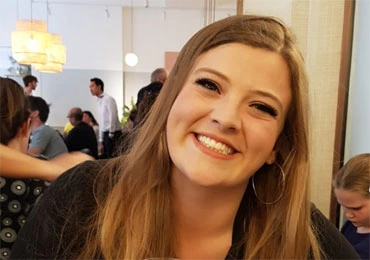I remember when my friend used to struggle with communication. It was as though no matter how hard they tried, they were always misunderstood. Arguments seemed to happen often, and it left them feeling frustrated and disconnected from everyone around them. There was this constant feeling of something missing in their interactions, but they couldn’t quite put their finger on what it was. Then, everything changed when they began learning about emotional intelligence (EQ).
They told me that they never realized just how much their lack of emotional awareness was affecting their relationships. Misunderstandings, conflicts, and communication breakdowns—things they had grown used to—weren’t just about saying the wrong thing. They were more about not knowing how to say it, or not truly understanding how to listen and empathize with others. My friend had always assumed that knowing the right words was enough, but there was so much more to it.
Emotional intelligence turned out to be not just about managing their emotions but also about becoming aware of them and learning how to use them in positive ways. They realized that EQ was the key to navigating emotions more effectively, building empathy, and creating deeper connections with the people around them. This applied to every area of their life—romantic relationships, family, and even work.
They started with self-awareness. It wasn’t easy at first—like trying to catch emotions midair—but over time, they learned to recognize their emotions as they arose and understand how those feelings influenced their thoughts and actions. My friend remembers a specific moment when their boss criticized their work. They felt this surge of anger, but after some reflection, they realized it wasn’t really about the criticism—it was more about how much they had invested in the project. Understanding that allowed them to pause, take a breath, and respond calmly, instead of becoming defensive. It made a huge difference.
Next, they learned self-regulation. It wasn’t about suppressing emotions; it was about managing them in a healthy way. They shared a time when they were overwhelmed by multiple deadlines at work. Instead of letting anxiety take over, they broke down the tasks into smaller, manageable pieces and even reached out to colleagues for support. It felt empowering, like taking control of their emotional state instead of letting it dictate their behavior.
Motivation came next. With their newfound understanding of emotions, they found themselves more driven. They could channel feelings like frustration and stress into something productive. It wasn’t just about pushing through challenges; it was about using their emotional energy to stay resilient, even in tough times. This shift allowed them to stay focused on their goals, no matter what obstacles came up.
But the most profound change happened with empathy. My friend became better at understanding and responding to other people’s emotions. They noticed that in romantic relationships, when their partner was stressed, they used to take it personally, assuming it was something they had done wrong. But once they understood empathy, they could step back, recognize their partner’s stress, and offer support without getting defensive. They might say, “You seem stressed. Do you want to talk about it, or would you prefer some quiet time?” It wasn’t about fixing things for the other person—it was about creating space for them to feel heard and understood.
Then there were the social skills—those subtle but powerful tools for navigating relationships. Whether it was defusing a tense argument with a colleague or offering a helping hand to a friend in need, my friend learned that communication wasn’t just about speaking. It was also about listening. It wasn’t about being “nice”; it was about being genuine, setting boundaries when necessary, and handling difficult conversations with respect.
Over time, they realized that emotional intelligence wasn’t just about being emotionally aware—it was about balancing emotions with logic. It was about using empathy and social skills to build strong, positive relationships. EQ wasn’t about manipulating others or pretending everything was fine when it wasn’t. It was about being honest, vulnerable, and making meaningful connections.
In their family, for example, when their child had a meltdown in the grocery store, they didn’t get angry or embarrassed. Instead, they paused and took a moment to understand why their child was upset. They would crouch down to their child’s level and gently ask, “What’s going on? What do you need right now?” This shift in how they approached their child’s emotions not only helped calm the situation but also deepened their bond.
At work, EQ also became a game-changer. When a team member missed deadlines, my friend didn’t jump to conclusions or lash out. Instead, they approached that person privately, asking how they were doing and offering support. Turns out, the team member was going through a tough personal time, and by showing empathy, my friend helped them get back on track.
My friend’s journey with emotional intelligence has shown me that EQ isn’t just about feeling better; it’s about communicating more clearly, understanding yourself and others on a deeper level, and building relationships that matter. Sure, it takes practice, but the results speak for themselves. Now, instead of letting miscommunication or emotional reactions rule their life, they feel more in control, more connected, and equipped to handle all kinds of relationships—whether at home, at work, or with friends. Emotional intelligence truly has transformed their life.
Our singles events in Leeds take a different spin on dating and allow you to create real connections in organic, safe environments. We get singles together, doing things they enjoy with hosts there to make the experience comfortable. Check out our upcoming events and follow us on Instagram for events annoucements and dating tips.

